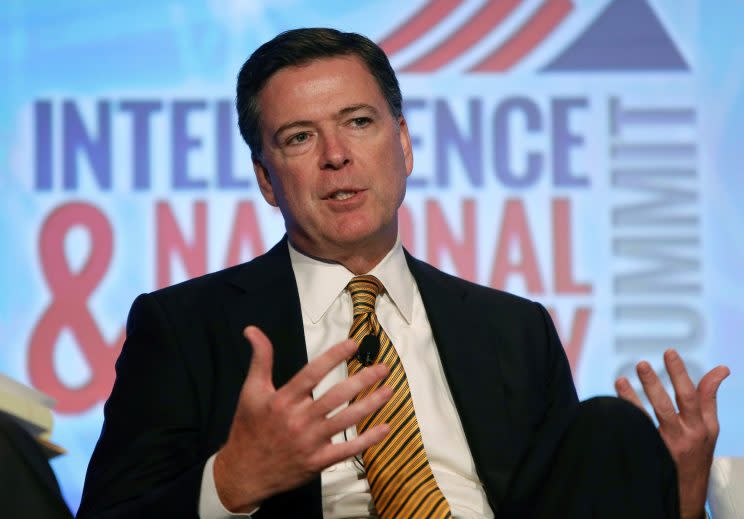FBI director suggests taping over personal webcams

FBI chief James Comey said his practice of placing a piece of tape over his personal laptop’s webcam is an everyday safety step that others should employ.
The bureau head recommended the webcam tape during a Sept. 14 appearance at the Center for Strategic and International Studies conference. The precaution is not merely an idiosyncrasy, he said, but a security measure no different from using an alarm system or locking a car.
When asked if he tapes over his cameras at home, Comey replied, “Heck yeah, heck yeah. And I also — I get mocked for a lot of things, much mocked for that — but I hope people lock their cars. I don’t have my own car that I drive, but I’m sure we lock our FBI cars. Lock your doors at night. I have an alarm system. You have an alarm system? You should use it. I use mine.”
After The Hill newspaper flagged the recommendation, which subsequently went viral, critics brought up the discrepancy between the FBI director’s concern for his personal privacy and alleged disregard for that of others.
In April, Comey revealed that he had taken up the habit of placing tape over his laptop’s camera. The disclosure did not go unnoticed because the FBI was in the midst of a fight with Apple over access to encrypted information about the tech company’s users. The debate hit its peak when Apple refused to help the bureau unlock the iPhone of the slain terrorist in the San Bernardino, Calif., shooting.
There have been instances in which hackers have tapped into webcams on private citizens’ personal devices to spy on them. But some privacy activists accused the FBI leader of hypocrisy. After all, he had said, “absolute privacy” would interfere with law enforcement’s mission to keep the public safe.
“It’s not crazy that the FBI director cares about personal security as well,” Comey said. “And so I think people ought to take responsibility for their own safety and security. And there’s some sensible things you ought to be doing, and that’s one of them.”
Government institutions, he continued, have taken similar steps to safeguard the privacy of their employees.
“You go in any government office,” he said. “We all have little camera things that sit on top of the screen. They all have a little lid that closes down on them. You do that so people who don’t have authority don’t look at you. I think that’s a good thing.”

